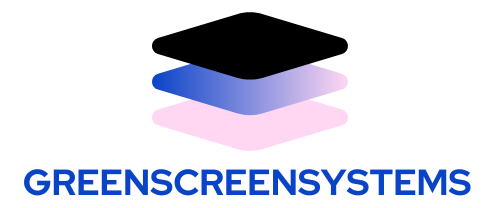Table of Contents
ToggleIn a world where students are glued to their screens more than ever, edtech funding has become the hottest ticket in town. With billions of dollars flowing into innovative educational technologies, it’s like watching a high-stakes poker game where everyone’s betting on the future of learning. Investors are scrambling to find the next unicorn that’ll transform classrooms into tech-savvy wonderlands, and who can blame them?
Overview of Edtech Funding
Edtech funding has experienced significant growth, reflecting the rapid integration of technology in educational settings. In 2021, global investments in edtech reached approximately $20 billion, showcasing a strong interest from investors in innovative solutions. The COVID-19 pandemic accelerated this trend, pushing schools and institutions to adopt digital tools for remote learning.
Growing numbers of startups emerge, each offering unique platforms and services designed to enhance the educational experience. These startups often focus on specific areas, such as personalized learning, assessment tools, or teacher training programs. Such diversity in offerings appeals to a wide range of investors seeking impactful solutions.
Notably, venture capital firms play a pivotal role in shaping the edtech landscape. Firms like Reach Capital and GSV Ventures have invested heavily in promising companies, driven by the vision of transforming education through technology. Their backing often provides the necessary resources for startups to scale operations and enter new markets.
Funding rounds typically involve significant amounts, with some companies securing over $100 million in a single round. This level of investment underscores the confidence investors have in the edtech sector. Market analysts predict that the demand for technology-enhanced education solutions will continue to rise, further fueling investment opportunities.
Investors focus on startups addressing pressing challenges in education, such as accessibility and engagement. As more institutions recognize the value of technology, the potential for increased funding remains substantial. The edtech funding landscape presents a dynamic environment, showcasing the ongoing commitment to improving education through innovation.
Trends in Edtech Funding

Edtech funding is witnessing substantial transformation and diversification. This growth reflects a heightened demand for innovative educational solutions.
Growth in Investment
Investment in edtech surpassed $20 billion globally in 2021. This figure suggests that investors are increasingly recognizing the potential of technology to reshape education. Significant funding rounds often see companies securing over $100 million, exemplifying strong investor confidence. Notably, the COVID-19 pandemic acted as a catalyst, driving schools to adopt digital tools for remote learning at an unprecedented pace. Various venture capital firms, including Reach Capital and GSV Ventures, actively support this trend by channeling resources into promising startups. Such robust investment activities demonstrate a strong belief in the edtech sector’s capacity to address critical educational challenges.
Emerging Technologies
Innovative technologies are rising in the edtech landscape. Startups are progressively focusing on personalized learning, immersive experiences, and advanced teacher training solutions. Artificial intelligence and data analytics are frequently integrated into educational platforms, enhancing user experiences and improving outcomes. Additionally, platforms that emphasize accessibility draw particular interest from investors, ensuring equity in educational opportunities. Gamification is increasingly utilized to engage students, demonstrating its effectiveness in learning retention. As startups explore these advanced technologies, they contribute significantly to the evolving education ecosystem.
Major Players in Edtech Funding
Multiple entities drive the dynamic landscape of edtech funding. Venture capital firms and government initiatives significantly shape investments and innovation in education technology.
Venture Capital Firms
Venture capital firms act as key players by channeling large sums into promising edtech startups. Reach Capital, GSV Ventures, and others focus on high-growth potential companies. Their investments often exceed $100 million, demonstrating strong confidence in the sector’s future. These firms not only provide financial backing but also strategic guidance for scaling innovations. Collaborations with industry experts enhance the startups’ capabilities to navigate challenges in education technology, further influencing the funding landscape.
Government Initiatives
Government initiatives further bolster the edtech funding ecosystem. Various national and local programs allocate resources specifically for educational technology development. Prioritizing access to digital learning tools, initiatives aim to bridge gaps in education caused by socioeconomic disparities. Significant investments in infrastructure, such as broadband access, enhance the reach of these technologies. Regulatory support encourages innovation and collaboration among educational institutions and tech developers, paving the way for long-term advancements in the sector. These combined efforts underscore a commitment to improving educational outcomes through technology.
Challenges Facing Edtech Funding
Edtech funding faces several challenges, impacting growth potential in the sector. Market saturation poses a significant concern, as numerous startups enter the arena, offering similar solutions. Investors often experience difficulty identifying unique value propositions among countless offerings. This saturation can lead to fierce competition, resulting in many companies struggling to secure funding. Companies must differentiate themselves to stand out in a crowded market.
Regulatory hurdles also present obstacles. Compliance with various educational policies can be complex and burdensome. Startups encounter difficulties navigating different states’ requirements, which can hinder expansion efforts. Funding sources may become hesitant due to concerns about compliance, affecting investment timelines. Adhering to regulations is essential for fostering trust and attracting financial support.
Future of Edtech Funding
Edtech funding is poised for continued expansion, with projections indicating that investments may exceed previous highs. The shift towards hybrid learning environments catalyzed demand for innovative educational solutions. Investors recognize the opportunity to support ventures addressing key areas such as accessibility, student engagement, and digital literacy.
Notably, global edtech investments surpassed $20 billion in 2021. This amount reflects increased investor interest driven by the integration of technology in classrooms. With venture capital firms like Reach Capital and GSV Ventures investing heavily, startups are better equipped to scale and innovate. Those securing funding often raise amounts exceeding $100 million, showcasing the market’s confidence in well-structured educational technologies.
Additionally, the emergence of artificial intelligence, data analytics, and gamification transforms educational experiences. Startups that leverage these technologies stand out in a crowded market, emphasizing differentiation as a critical success factor. Innovators are focusing on solving pressing issues within education, which attracts further funding opportunities.
Government initiatives contribute significantly to the funding landscape as well. By prioritizing access to technology and supporting infrastructure development, they enhance the overall ecosystem for edtech ventures. Such backing underscores a commitment to bridging educational gaps and advancing innovative solutions.
Market challenges, including saturation and regulatory compliance, persist. Companies must navigate these hurdles while distinguishing themselves from competitors. Success hinges on fostering trust and demonstrating adherence to educational policies, which are essential for attracting sustainable investment moving forward.
The edtech funding landscape is evolving rapidly as investors recognize the potential for transformative educational solutions. With billions being invested and a growing number of startups emerging, the sector is set for significant growth.
Challenges like market saturation and regulatory hurdles remain but innovative companies that navigate these obstacles will likely thrive. The increasing demand for technology-enhanced education continues to attract attention from venture capital firms and government initiatives alike.
As the focus shifts toward accessibility and engagement, the future of edtech funding looks promising, paving the way for a new era in education that prioritizes effective learning through technology.




